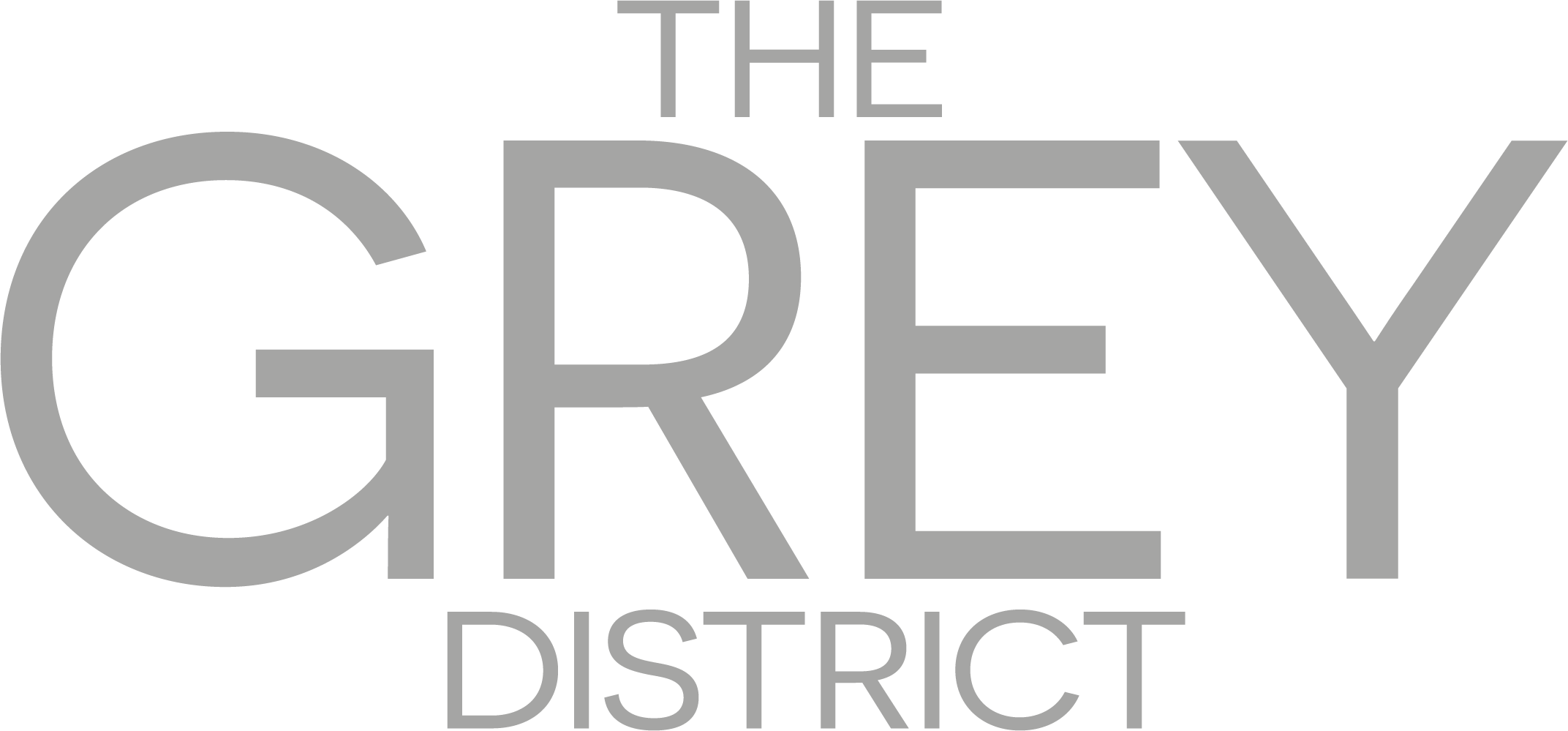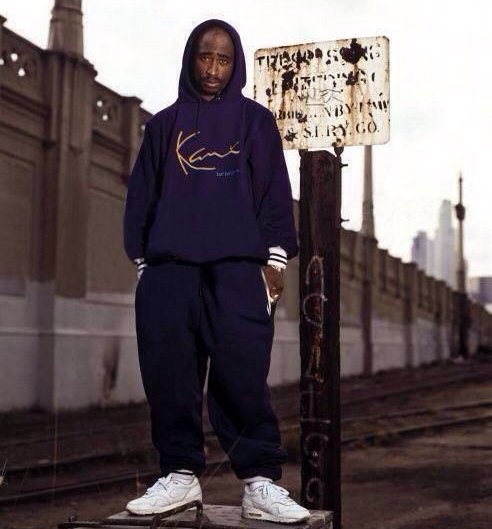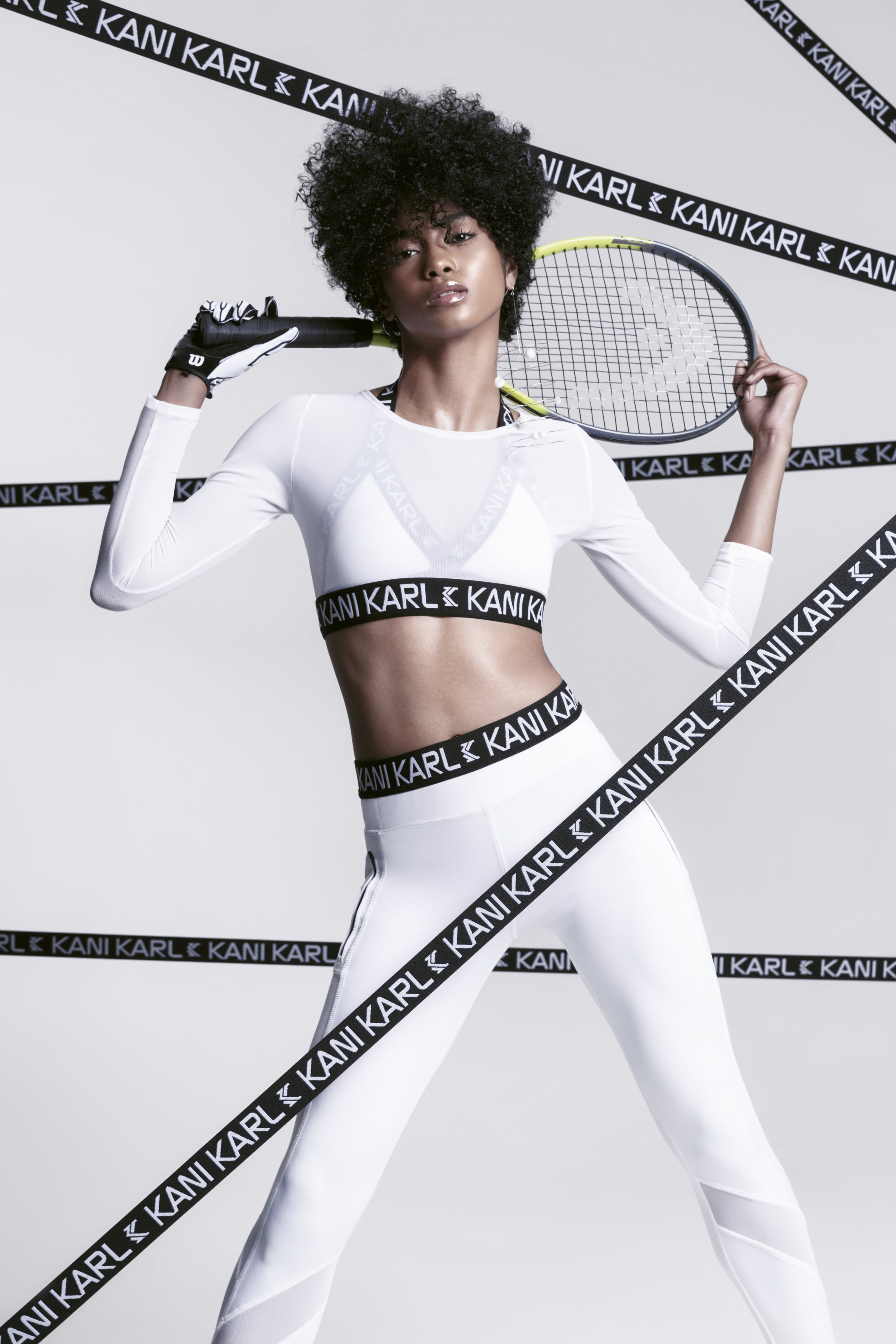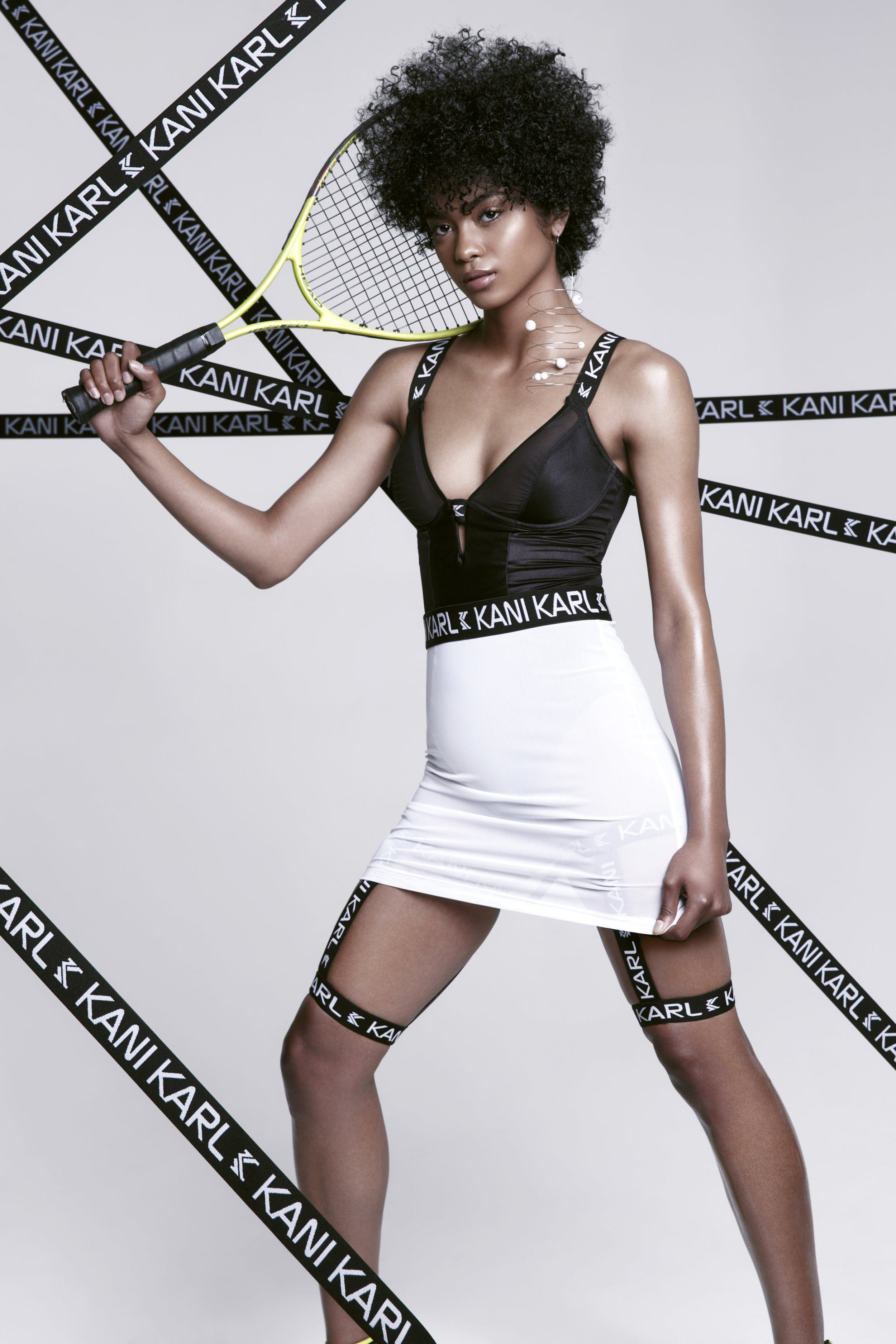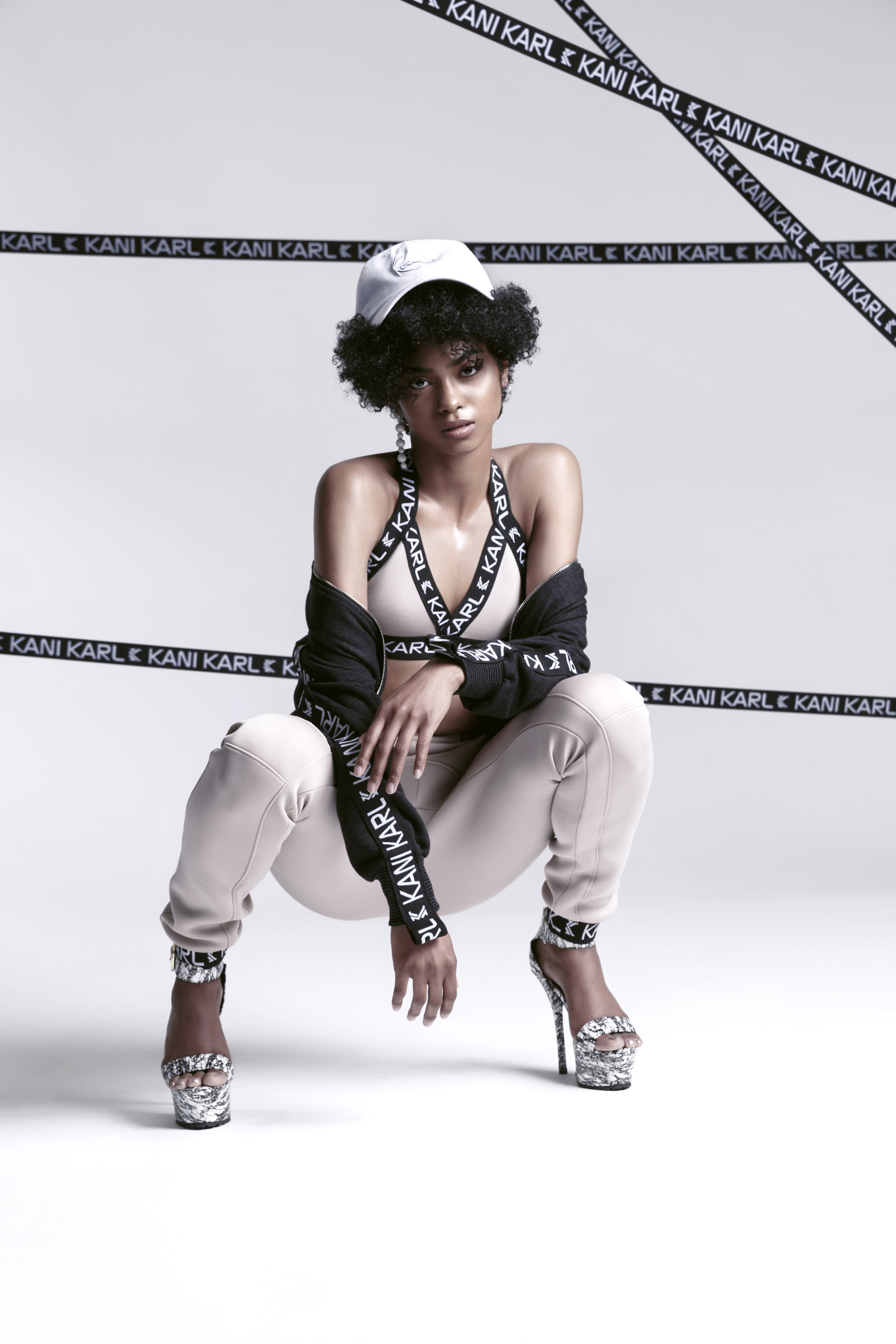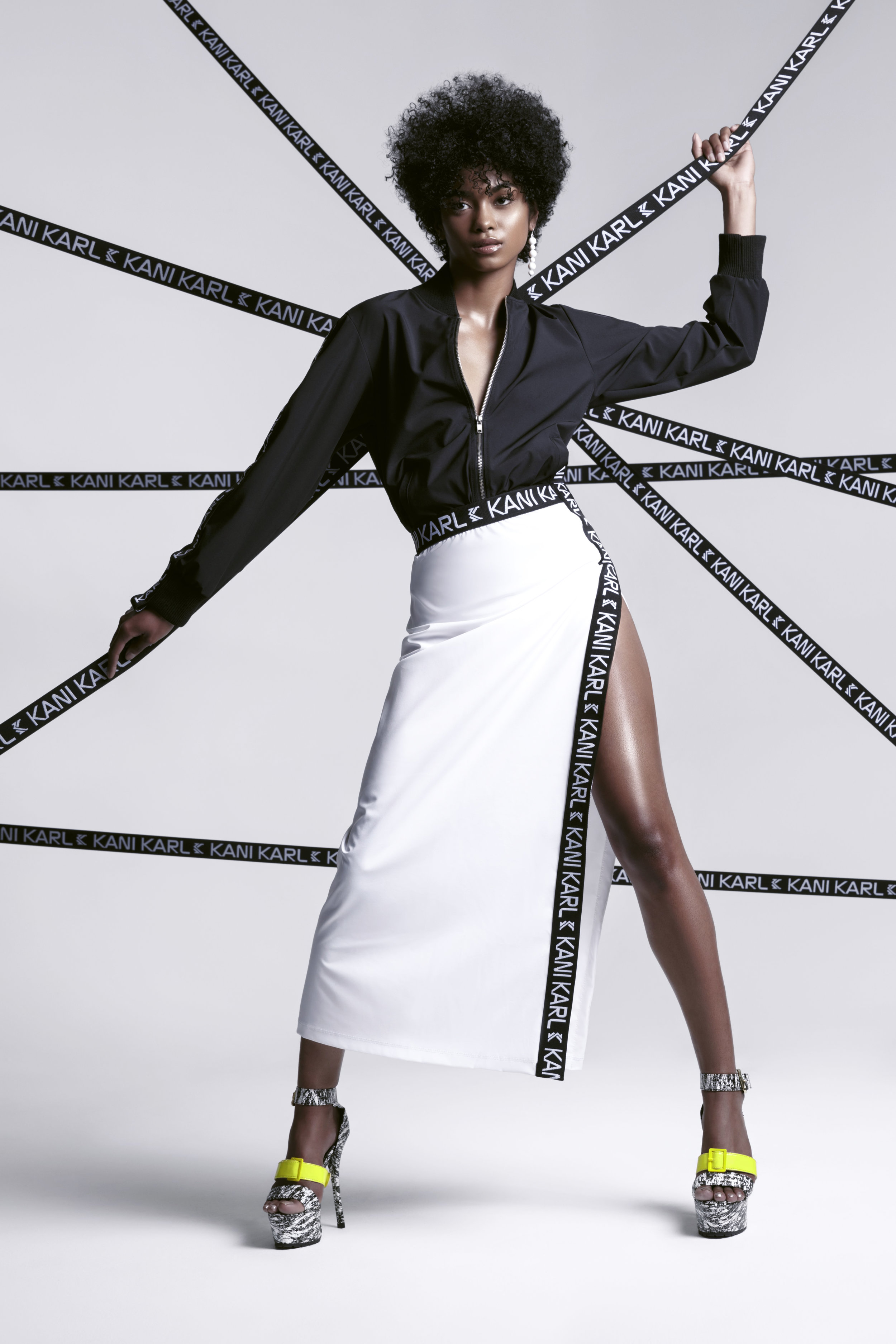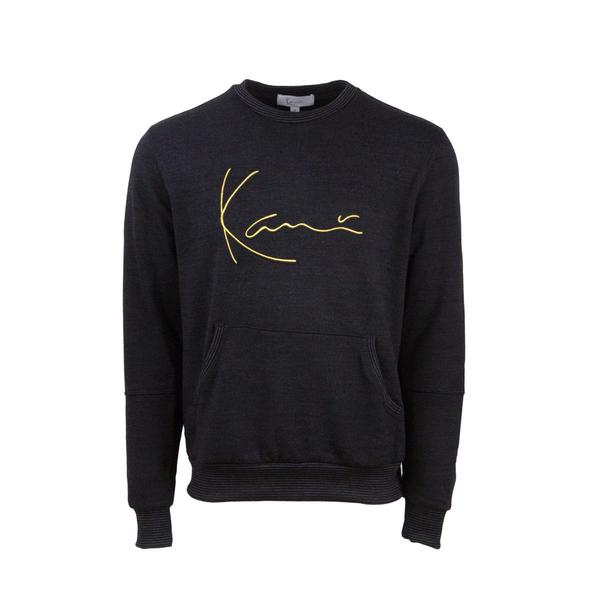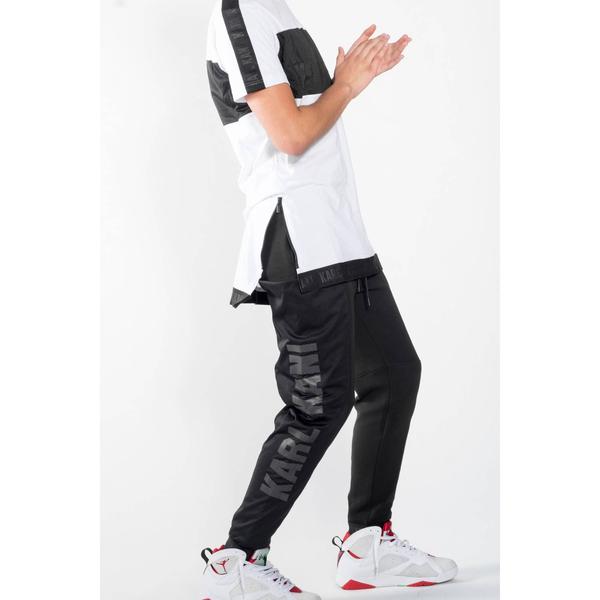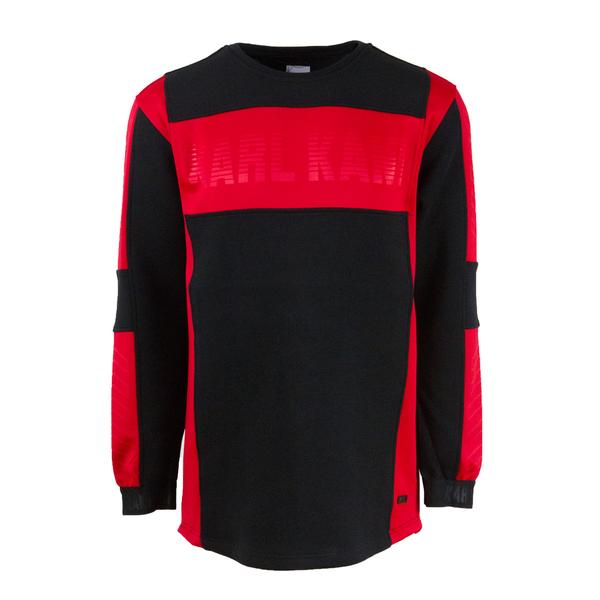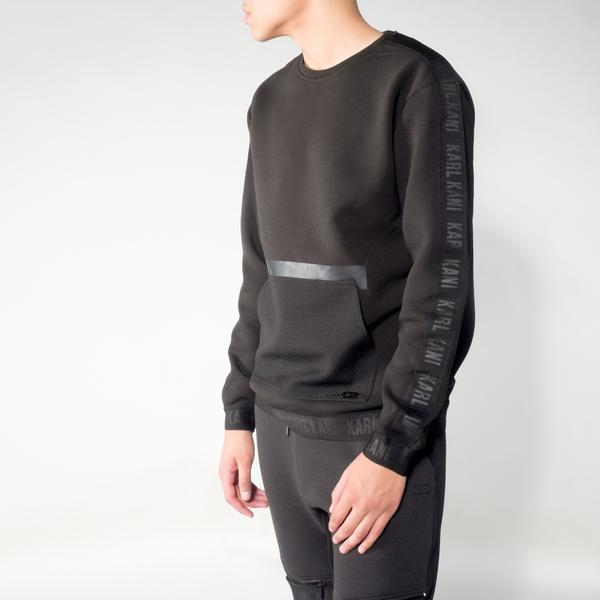Karl Kani
How did you get your start in fashion?
I was born in Costa Rica and we migrated to the United States in the late 60’s. My dad is Panamanian and he would get clothes custom made with a tailor in Flatbush, Brooklyn. I used to watch the process of him buying his fabric in Manhattan and bringing them to the tailor to have his garments rendered. When we moved to East Brooklyn, the competition was really in amongst the kids when it came to fashion. You had to have the freshest Adidas, the freshest Pumas--you had to be FRESH to be one of the “cool kids.” My friends and I would try to out shop each other and buy things but not tell the others where we got it from because we wanted to be exclusive. I got the inspiration from my dad to get my clothes from a tailor so they would be unique. That was my first take on fashion; I started making clothes for myself and went on to make clothes for my friends.
On the birth of Karl Kani:
I was making clothes for these dudes in the projects and one day this guy walked by with one of my outfits on. I was bragging to my friends that I made the outfits and they didn’t believe it. As they were checking out the outfit, they asked why my name wasn’t on the pieces. That’s when it hit me that I needed to start putting my name on clothing. At the time, I was 18 years old; I wasn’t thinking about branding until they made that comment to me. At that point, I wanted to come up with a name that meant something and could stand the test of time. Karl Williams, my family’s last name, Jeans didn’t have the ring that I wanted -- It didn’t sound like Tommy Hilfiger or Calvin Klein, and I wanted a designer name. “Can I?” was a question I asked myself a lot in times of self-doubt. Can I be successful? Can I come from the inner city and build a brand? I figured if I add it as a part of my name, every day I would have to answer the question “Yes I Kan.” That was the start of Karl Kani
On Partnering with Cross Colours:
I went out to Los Angeles with a thousand dollars and was hustling jeans off Crenshaw Boulevard in South Central. We eventually got a store but got robbed some after. We ended selling jeans via mail order out of an apartment in Hollywood. One day, Cross Colours was having a fashion show, I went to the show and met the owner, Carl Jones, and we hit it off. The next day, Martin Luther King Day 1990, we met at his office and decided to team up and run the industry as two black-owned companies.
What do you attribute to the success of the Karl Kani brand:
Number one would be the blessings from God. I barely graduated high school but one thing I did have was work ethic and vision. At 12 years old, I would wake up at 5:30 every morning to deliver newspapers so I could get the money to buy clothing because I wanted to be a cool kid. When I got on, there were no black sales reps in the industry. I hired all my friends to be my sales reps. We opened the doors up for black executives in the industry. In the early 90’s, it was all about supporting your own--that was an element that built Karl Kani. We were the brand that connected to the culture. Hip Hop needed a designer that was going to embrace the art form. Other designers did not want hip hop artists in their clothing.
Rapper Tupac was a huge supporter of your brand. Did anyone from his biopic “All Eyez on Me” reach out to you regarding wardrobe?
The producer of the film, ET Hutton, and I have been friends before the movie. When the movie was in production, he and I sat down and he told me it would not be a Tupac movie if they did not have Karl Kani in the wardrobe. He asked me to remake some of the custom pieces that Tupac wore during pivotal moments in his life. For example, he had a Karl Kani sweatshirt on in the infamous Tupac and Faith picture. When Tupac got shot in New York, during his first live interview, they asked him happened. He said, “I didn’t feel nothing, I opened my pants, and I could see the gunpowder and the hole in my Karl Kani drawers.” Tupac was such a great guy and had a good energy.
On the shift in urban streetwear markets and going international:
I think the product wasn’t creative enough. People are not going to wear the same thing over and over again. People wanted change and I don’t think the streetwear brands were as quick as the market dictates. As a designer, you can sense the change coming and you have to adjust to the change in the market. It’s all about smart and being ahead of the curve. Also, the market has grown so much now. When we first started, urban streetwear was 100% black. Now the industry does not have a color. You have to adjust and find your movement in the change.
There came a time when we weren’t the big market in the U.S. that we were in the 90’s. We were not generating the business that we previously had. When things weren’t going as well in the States, we saw the urban streetwear culture is bigger than the U.S. Kids in Japan, London, and Germany want to be a part of this culture and they want the original pieces -- they don’t switch trends as quickly as consumers in the States. That enabled us to established our brand overseas and have a fresh start in the international markets.
You have been in the game for 28 years. What is the biggest lesson you have learned during your career?
I’ve learned if you are here on this Earth and you have a destiny, what you do is not work anymore because it’s bigger than you. I’ve learned to trust the process and enjoy the future. We were put here to open up doors and we understand that. Now it’s about us staying successful. If we don’t stay successful, it doesn’t speak well for the culture. It doesn’t speak well for black-owned businesses. Ralph Lauren has been around since 1967, Calvin Klein has been around since the 70’s -- why can’t streetwear culture brands do the same? We have to be that cornerstone brand to make that happen because if we don’t, then who will?
What advice would you give a new designer working on their first line?
Don’t try to be everything to everyone. Be true to who you are as a designer and find your niche. Find something you specialize in and let your brand build from there. A lot of times people try and come out with too many things, and it’s hard to master it all at one time. You must have excellent quality and a great concept for your brand. You also need to have a message behind your brand; you have to answer the question, "What does your brand stand for?"
What’s next for Karl Kani?
We have ten flagship stores in Japan and we are distributing into 25 foreign countries; Germany, Switzerland, and Amsterdam are our biggest markets right now.
I’m also working on the Karl Kani autobiography, a story of a 16-year-old kid from Brooklyn who had this idea that he could put his name on people’s back, build a brand, and become internally known. It shows the power of what can happen when you give a kid from the inner city time to think. It only takes one person that looks like you, that talks like you, and that you can relate to, to give you the belief that you can accomplish something. P. Diddy once said “Karl Kani made the dream accessible. He made me feel like if he could do it, then I could do it.” That’s what’s it’s all about.
What quote or motto do you live your life by?
“If you can’t see it. You can’t be it.”
When I was younger, I would find myself in my room listening to Phil Collins’ “In the Air Tonight” in the dark and manifest my thoughts of what I wanted to do life. If you don’t have a vision, don’t have an endgame, you will be running in circles. You have to see where you are going, believe it, and speak things into existence. That’s the key.
For more information, please visit KarlKani.com and follow on social @karlkani
